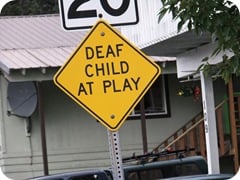 Photo by Roni Epstein
Photo by Roni Epstein
At a time when the school gates are being locked for the summer and the students are shoving their schoolbags into the darkest corner of their cupboards, the #ELTCHAT community gathered to discuss:
” How To keep learners’ (especially young learners and teenagers) English going during the break?
The discussion was very animated, inspiring and packed with ideas. A few of us thought it a shame that we hadn’t had this discussion a few weeks ago as the school year has already ended in some places!
This is my first #ELTchat summary so I hope I’ve managed to convey the great chat we had in a clear manner. You can read the transcripts here
Part One – A Preliminary Question: WHY?
The following question kicked of the discussion (and got quite a few Retweets!)
@Fuertesun: Can I start by asking Why can’t we lay off ‘em and give ‘em a break?
@pjgallantry seconded that and added: Yeah, why not give them a break? We won’t have anything to teach them in September otherwise. 🙂 @Fuertesun points out that: They’re at school all year in private classes etc. @eyespeakbrasil and @Shaunwilden agreed, reminding us that that’s why it was called a holiday! @Fuertesun elaborated: Why can’t they be kids? I suppose my problem is that there is no research that you put homework in and get something out. Okay yes lifelong learning but they’re “minis”. I think the whole concept of summer is, that it’s a BREAK!
@ sandymillin highlighted an additional difficulty by asking: how likely are you to end up with the same students after the summer holiday? In my case, chances almost nil (if at same school!)
For a moment there it seemed as if this question would put an end to the chat after it had hardly begun (there were murmurs about going to bed early!) but @Shaunwilden declared Haha, good point – ok break not an option :-).
And then we got down to answering @Feurtesun’s questions relating to “WHY?”:
@Sandymillin was the first to reply: Some students ask for things to do over break! It doesn’t have to be like homework! Giving them a break is good, but nice for them to have some fun things to do to keep it up. It’s important to keep them interested in the language…there’s so much fun stuff for English out there!@NoraTouparlaki points out that: 3 months in Greece is too much, students need something to do! @eyespeakbrasil: and @Marisa_C both agree with Nora and Marissa adds: it is a bit too long – a lot can be forgotten, especially by young learners. @KarenInGreece points out that: my students have a 4-month summer break from lessons. It’s too long not to do anything, don’t you think? A lot is forgotten over that long break, especially if they don’t stay in touch with the language (i.e. books/movies).
@bcnpaul1 adds that in his opinion: giving them a break is good but they need something to keep them engaged. He agrees with Sandy that some students DO ask for things to do over the break. @Shaunwilden agrees that: for those that who want to study we should be able to direct them.
@ShellTerrell sums this part up by saying: I think we can suggest activities for students to keep up their English skills but we should really suggest since it is their break. As there seemed to be general agreement that summer activities shouldn’t be mandatory, the discussion moved on to…
Part Two – If it’s optional – how does that work?
* @Fuertesun agrees with @Shaunwilden that direction is fine: What I mean is that in my case I’ve never had a kid asking for stuff only parents. kids are always so busy here in Spain…
* @NoraTouparlaki comments that : kids will never ask for extras:) to which @Fuertesun replies: I don’t blame them! Nora’s rejoinder: me neither, but we have to persuade them that learning never stops. @naomishema It HAS happened to me that kids ask for something. not often but does happen! Some of the lonely kids would enjoy suggestions. there are kids that just move from tv / computer @NoraTouparlaki says that those children who DO ASK are the easy part of our task (did I detect a sigh in that tweet?).
* @ShellTerrell: I think we can suggest activities for students to keep up their English skills but we should really suggest since it is their break.
* @Fuertesun we always give out the same tired handout with the usual websites to look at, but they never do – needs to be more ‘why’ involved. “Why” is the question – trying to generate intrinsic motivation is the answer, in my opinion. If the summer ideas aren’t mandatory then those who are drawn to it can benefit . I wouldn’t make it mandatory.
* @bcnpaul1 stresses that we’re not asking for hours a day – just something small
* @pjgallantry of course, it depends on context – if the learners are in a NNES (Non-Native English Speaking) environment, they’ll need more than if they’re based in the UK, for example.
* @Shaunwilden raises an important problem:
But then how do you deal with, after summer, when some want to show what they’ve done and other have nothing? @Fuertesun replies:they look like goody two shoes and everyone hates them!
I (yes, I’m @naomishema) feel very strongly about this point, perhaps as I’m a special-ed. teacher:
In any case all ideas are problematic insofar as show and tell – one kid had a blast to tell about while the other kid did “Nada”! If not mandatory, kids don’t necessarily have to present to the whole class, Teacher can think of ways to showcase. Teacher’s praise would mean a lot to some kids! (to which @Fuertesun warns that teacher’s praise is a whole different topic!) @naomishema suggest letting students present materials relating to things they would have liked to do, can be imaginary.
@Shaunwilden summed up the agreement that online sharing overcomes a lot of those show and tell issues

Part Three –suggested activities
* @harrisonmike :How about setting up a reading list for your students of books they might be interested in like this http://bit.ly/eltbooklist ? OK, you don’t give them methodology books LOL. But direct them to teen fiction, graded readers, maybe set up reading in cafes… (see post links below) @Marisa_C adds: Anyone thinking of a summer library? Books, books, books
* @bcnpaul1: find things they’re interested in and tell ’em to keep up with those things by looking at websites in English = real world need. It doesn’t have to be ‘study’ maybe more of a ‘this is why you learnt stuff’ type focus. For example, most kids love music. Why not get ’em to come back with their favorite English songs of the summer with at least one student generated worksheet. @Vickyloras also supports using music. @chrisemdin A great summer activity that isn’t laborious & builds skills is to have youth listen to and break down lyrics to songs
* @vickyloras: Take them on a tour at a bookshop or local library before the holidays,to browse with them and help them find what they like.
* @ShellTerrell For students who want ideas we can list them in a Wiki, blog, or even with a hashtag on Twitter Anyone do this?
@ThirdGradeTerri Love the hashtag idea. My students watch my tweetdeck after recess and love #elemchat #edchat and they are 3rd graders
(@naomishema: think though – what language should the summer ideas be listed on a site? maybe L1 and English? Otherwise ideas lost in translation)
* @Marisa_C: Children need to play – why not collect a number of games for them in a wiki
* @ShellTerrell: Social media is a great way to get them conversing like a Facebook page or weekly chat. If there is already a class blog, Wiki, Twitter, Edmodo or FB group, many students will just continue communicating there @mthornton added todaysmeet is great for this! This suggestion lead to some discussion:
@pjgallantry:Chances are that the students already use social networking sites eg facebook, but in L1 – What’s the advantage to using English for them? @naomishema :since Facebook is in L1 AND GOOGLE TRANSLATOR is available (problematic translations don’t bug my kids) they surf without ENGLISH
Also, I raised a concern :Have you ever had issues with parents concerning joining an online community? who is supervising they may ask? To which @ShellTerrell replied that she discusses this with parents. She also explained: When I’ve asked parents for suggestions for the wiki of English games to play I’ve gotten great involvement”
General consensus among chat members that parental involvement and support important here! NOONE likes pushy parents!
* @eyespeakbrasil Augemented reality sites are cool – for self discovery. In addition, they could use voice recognition software to practice their listening, speaking, pronunciation, stress and fluency skills
* @NoraTouparlaki I’d sugggest using movies,cartoons @Marisa_C: Get them to make a movie of their summer with drawings which they caption
* @Shaunwilden: they could use portable devices to record what they do on their summer holiday.Set 21st century equivalent of ‘what I did for my summer” that would appeal i.e. use phone, take pictures ,videos, have a blog as a journal
* @Fuertesun They can do the drawings or take pictures during their holidays – keep a scrapbook @pjgallantry an idea might be a ‘found language’ scrapbook – bits and pieces they’ve heard, seen, read, collected together. Which they could also make on glogster if they dont have a scrapbook 🙂
* @naomishema Students could make a slide show with summer holiday snapshots and write titles (or narrate, for the hearing kids!) lots of sites! @harrisonmike adds: Get them on #Flickr to share snaps from their holidays
* @NoraTouparlaki I’d say just get in touch with tourists:) trying to chat and make friendships! @Marisa_C adds teachers could organize a website to find a summer pal @nutrich: Make friends with foreign kids at the beach – that’s what some of my YLs did in Spain. It’s not class, it’s real life communication. that always helps!They try to speak in English and keep up their skills,as it’s the only common language! @nutrich My students are always proud to tell me about times they’ve spoken English to a tourist/someone else!
* @pjgallantry an online noticeboard such as this- http://t.co/MsDaTWA might be a way to keep them engaged -posting as much/as little as they like
* @naomishema: wonder how many would continue reading a book or story if we read till the cliff hanger at the end of the year?
* @sedayyildirim during our revisions last two weeks, I want them to / be alert for the target language(music, internet, news) / practice & google
* @Marisa_C: Get them to make a movie of their summer with drawings which they caption
* @ShellTerrell: With parents I suggest a family game day where they can play English board games like Twister, Charades with kids @Shaunwilden adds: Other games include Clue, Apples to Apples, Taboo, etc @ShellTerrellI also suggest English events. In Germany we have English Stammtisch, English clubs, English movie theatre, etc
* @naomishema: for young learners, make placemats with english vocab & drawings on it at end of year. Kids eat & learn all summer on them! When the things interest the children it is amazing what they absorb while eating!
* @vickyloras Especially for adult Ss, podcasts from newspaper,magazine and radio station websites – easy stuff to access and learn from.
* @sandymillin: You could get them to share fun youtube vids w/ e.o. Mine loved http://youtu.be/rxUm-2x-2dM & http://youtu.be/p3JcHhA7M-Y
* @nutrich: Suggests that kids teach their siblings/ parents/ grandparents "let’s make grandad say English things!" etc
*@ BethCagnol I tell my kids (university age) to go to the States with their parents. Make it a family adventure. @ShellTerrell Some will travel to another country, we can have them do wallwisher/Linoit of useful travel phrases
* @ nutrich Boring car journey – label things in English, play games with siblings/ parents – cloud, tree, road, car, bus, lorry…..roadkill!
* @MikeCollins007: Why not do a treasure hunt of sorts using QR codes?
* @ hartle Sometimes do diving games in swim. pool for questions on waterproof cards, thn come out and ask them
Part Four – Useful Websites for Independent Learning
* @sandymillin: 3 great websites: Englishattack.com, lyricstraining.com & englishcentral.com
Also, quizlet.com – good for games
* @naomishema: headmagnet – http://bit.ly/cDwgiH
* @flocabulary Our literacy scavenger hunt has a list of fun ways students can keep up their skills around town this summer: http://ow.ly/5iIAx Scavenger hunt ideas include "educational eavesdropping" and analyzing street art, amongst many others.
* @AzraelleM –goodreads.com
* @Marisa_C voicethreads for sharing storybirds, snapshots and more.
* @ShellTerrell online ELT communities like Gapfillers http://bit.ly/VSWv & My EC http://bit.ly/ouIsF
* @ShellTerrell Ecobugs is a free app that is also great with lessons from teachers on the site http://bit.ly/fjp4qg
* @ harrisonmike http://weread.com/ for sharing reading and getting recommendations. For sharing reading lists http://bit.ly/arqnOD also I use #weread on #Facebook to share a bookshelf on my blog: http://bit.ly/4xNNPs
* @eyespeakbrasil Mingoville http://bit.ly/jXHlvs
* @hartle: This is link to my class if anyone has students who are interested?? http://ow.ly/1tOj81
* @bethcagnol I list some parent/child games here http://bit.ly/mdFOdZ
* @tarabenwell: MyEC to create blogs, videos, take part in audio, writing challenges etc. Also Hulabaloo with your YL
* @hartle: Summer Glogs a good way of doing show and tell http://ow.ly/1tOjCw
* @hartle my 6 lesson free online conversation course, young adults, uni http://ow.ly/5iKZd welcome http://ow.ly/5iKZe
Part Five – Organized Summer programs
This issue was brought up by @bcnpaul1: how many of your YLs get sent on summer camps in the UK – good or bad?
@Fuertesun:summer camps great. for experience not necessarily their English. Also points out that they are not all very expensive. @sandymillin I think there are good & bad points for it. not sure much eng. gets learnt but it is good exp. At same time they find the motivation. Do they carry that home with them?
@ShellTerrell :I think a lot go to English camps because I’ve taught in some every break with tons of kids. I like the idea of giving like a summer Advent Calendar of activities! Maybe thru Google Calendar or other social media way?
@bcnpaul1 YES it’s all about independence, making friends & positive associations with the language & finding love!!
@sandymillin We have one week summer schools at our school that some of our kids do – all project-based & fun. (12-week holiday)
@ vickyloras Sometimes I take them out during summer,we go to shops and chat only in Eng – then they like it and they do it w/friends too!
Part Six – Recommended posts on the topic
* @ShellTerrell wrote a post using games to get students learning English in the summer http://bit.ly/mdFOdZ
* @harrisonmike recommends @JezUden’s post on setting up reading in cafes: http://jezuden.edublogs.org/
* @Sandymillin:This was the lino I was making for an adult student who wanted to practice listening at home. Good for teens too: http://bit.ly/juZawh
* ShellTerrell: I found this QR guide by @coolcatteacher really useful http://bit.ly/ijEyZ3














